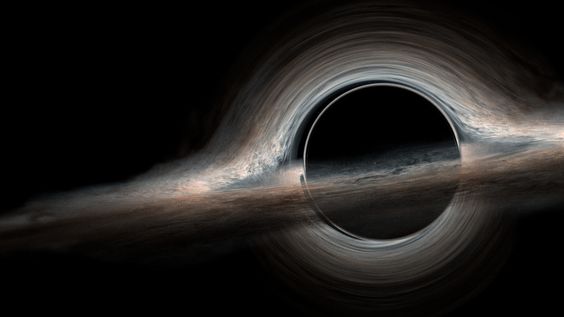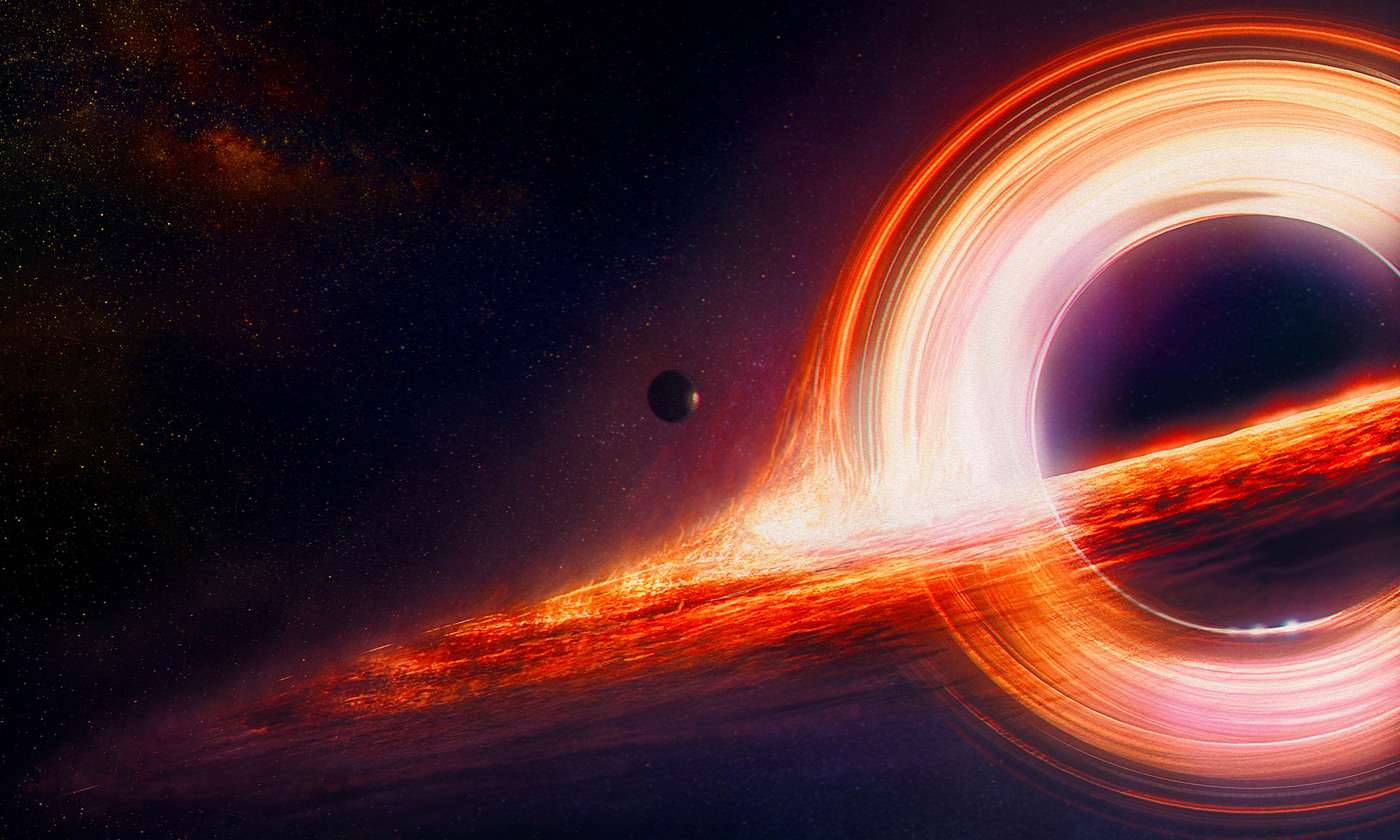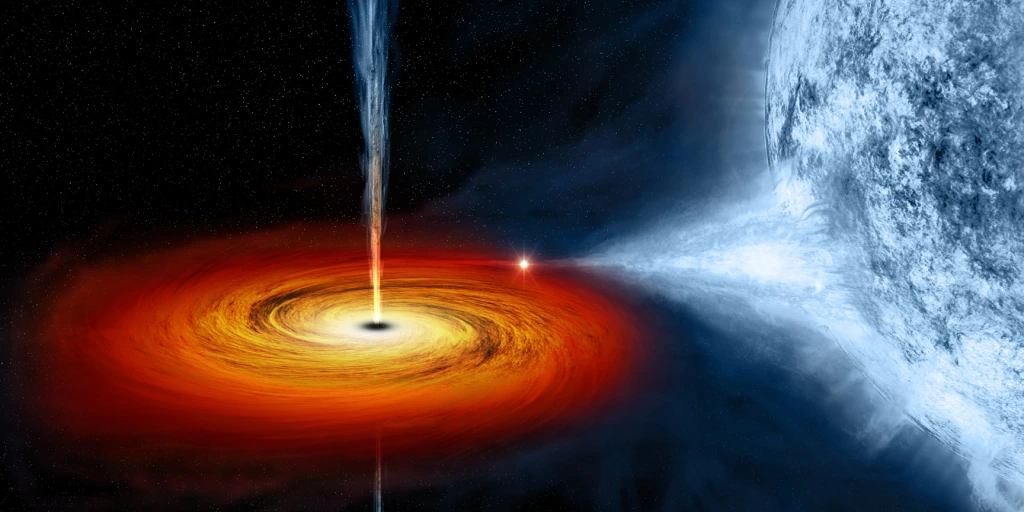The Real Mystery of Black Holes in the Universe
Introduction
Imagine a place in space where the gravity is so strong that nothing, not even light, can escape its grasp. This mysterious phenomenon is known as a black hole. Black holes have captured the curiosity of scientists and the public alike, and they continue to be a source of fascination and wonder. In this article, we will take a simple and easy-to-understand journey through the world of black holes, exploring their nature, formation, and the incredible effects they have on the cosmos.
What is a Black Hole?
At its core, a black hole is a region in space where the gravitational force is unbelievably strong. This force is so immense that even light, which is the fastest thing in the universe, cannot escape from its clutches. This makes black holes incredibly dark and mysterious, as they absorb all the light that comes near them.
How Do Black Holes Form?
To understand how black holes form, let’s first look at the life of a massive star. Massive stars are much bigger than our sun and shine brilliantly in the night sky. These stars generate energy through a process called nuclear fusion, where hydrogen atoms combine to form helium, releasing a tremendous amount of energy in the process.
As a massive star ages, it burns through its nuclear fuel, and when it runs out of fuel, it can no longer sustain the energy that counteracts the force of gravity pulling it inward. This leads to a catastrophic collapse of the star’s core, causing it to shrink rapidly. The immense pressure and gravity crush the core, and it becomes so small and dense that it forms a black hole.
The Types of Black Holes
There are mainly three types of black holes, and they are classified based on their mass:
- Stellar Black Holes: These black holes are formed from the remnants of massive stars after a supernova explosion. They have masses that can range from a few times that of our sun to several times greater.
- Intermediate Black Holes: The intermediate black holes are the black holes which are not stellar nor supermassive. Simply it falls between the stellar black holes and supermassive black holes in terms of mass. However, their exact origin and formation process are still not entirely understood.
- Supermassive Black Holes: These giants can be found at the centers of most galaxies, including our own Milky Way. They have masses ranging from millions to billions of times that of our sun.
What Happens Near a Black Hole?
As objects get close to a black hole, they experience some bizarre and mind-bending phenomena due to the intense gravitational forces at play. One such phenomenon is called “spaghettification.” Imagine a spaghetti noodle; as you get closer to the black hole, the gravitational pull on your feet would be much stronger than the pull on your head. This difference in gravitational force stretches you out into a long, thin shape, just like a strand of spaghetti!
Black Holes and Time
Time behaves differently near a black hole. When you are closer to a black hole, time passes more slowly for you compared to someone far away from it. This effect is known as “gravitational time dilation,” and it has been confirmed through scientific experiments and observations.
The Mystery of the Event Horizon
Every black hole has a boundary and that boundary is known as the event horizon. Once anything crosses this boundary, there is no turning back—it is forever trapped inside the black hole. This boundary is like a point of no return, where the gravitational pull becomes too strong for anything to escape.
Studying Black Holes
You might be wondering how we can study something as mysterious as a black hole. While we cannot see black holes directly, we can detect their presence by observing their effects on nearby objects. Scientists use special telescopes and instruments, such as X-ray telescopes and radio telescopes, to study black holes and the incredible phenomena they create.
The Mystery of Black Hole Evaporation
Although black holes are known for absorbing everything around them, there is a surprising process known as “Hawking radiation.” This radiation, proposed by physicist Stephen Hawking, suggests that black holes can emit tiny particles and energy over time. This process can lead to the slow evaporation of black holes.
Role of Black Holes in our Universe
Black holes play a crucial role in shaping the galaxies they reside in. For example, supermassive black holes at the center of galaxies can influence the movement of stars and the growth of galaxies. They are like cosmic architects, sculpting the cosmos around them.
The Role of Black Holes in the Universe
Black holes play a crucial role in shaping the galaxies they reside in. For example, supermassive black holes at the center of galaxies can influence the movement of stars and the growth of galaxies. They are like cosmic architects, sculpting the cosmos around them.
Conclusion
Black holes are truly some of the most mysterious and captivating objects in the universe. Their intense gravitational pull and mind-bending effects continue to intrigue astronomers and spark our curiosity about the cosmos. While there is still much to learn and discover about black holes, they remind us of the vastness and wonders of the universe we live in.
FAQs
- What happens if you fall in black hole? If you were to fall into a black hole, the intense gravitational forces would stretch you into a thin, elongated shape—a process called “spaghettification.”
- Are there black holes in our galaxy? Yes, there is a supermassive black hole called Sagittarius A* at the center of our Milky Way galaxy.
- Can anything escape a black hole’s gravity? No, once something crosses the event horizon of a black hole, it is trapped inside, and nothing, not even light, can escape.
- How do black holes affect nearby stars and planets? Black holes can alter the trajectories of nearby celestial objects, causing them to orbit around the black hole or be pulled into it.
- Do black holes last forever? While black holes can have incredibly long lifespans, they can eventually evaporate over an extremely long period through a process known as Hawking radiation.









